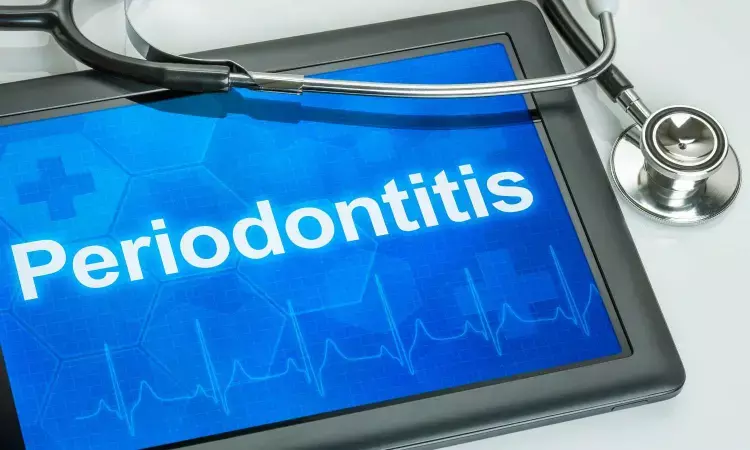- Home
- Medical news & Guidelines
- Anesthesiology
- Cardiology and CTVS
- Critical Care
- Dentistry
- Dermatology
- Diabetes and Endocrinology
- ENT
- Gastroenterology
- Medicine
- Nephrology
- Neurology
- Obstretics-Gynaecology
- Oncology
- Ophthalmology
- Orthopaedics
- Pediatrics-Neonatology
- Psychiatry
- Pulmonology
- Radiology
- Surgery
- Urology
- Laboratory Medicine
- Diet
- Nursing
- Paramedical
- Physiotherapy
- Health news
- Fact Check
- Bone Health Fact Check
- Brain Health Fact Check
- Cancer Related Fact Check
- Child Care Fact Check
- Dental and oral health fact check
- Diabetes and metabolic health fact check
- Diet and Nutrition Fact Check
- Eye and ENT Care Fact Check
- Fitness fact check
- Gut health fact check
- Heart health fact check
- Kidney health fact check
- Medical education fact check
- Men's health fact check
- Respiratory fact check
- Skin and hair care fact check
- Vaccine and Immunization fact check
- Women's health fact check
- AYUSH
- State News
- Andaman and Nicobar Islands
- Andhra Pradesh
- Arunachal Pradesh
- Assam
- Bihar
- Chandigarh
- Chattisgarh
- Dadra and Nagar Haveli
- Daman and Diu
- Delhi
- Goa
- Gujarat
- Haryana
- Himachal Pradesh
- Jammu & Kashmir
- Jharkhand
- Karnataka
- Kerala
- Ladakh
- Lakshadweep
- Madhya Pradesh
- Maharashtra
- Manipur
- Meghalaya
- Mizoram
- Nagaland
- Odisha
- Puducherry
- Punjab
- Rajasthan
- Sikkim
- Tamil Nadu
- Telangana
- Tripura
- Uttar Pradesh
- Uttrakhand
- West Bengal
- Medical Education
- Industry
Metformin beneficial tool for diabetic periodontitis through amelioration of oxidative stress

China: A recent study published in the journal Genes & Diseases has provided new evidence that metformin is a potential drug for periodontitis treatment and high mobility group box 1 (HMGB1) may be a potential target for periodontal intervention.
A notable discovery from this study is that Metformin not only decreases oxidative stress in periodontal ligament cells but also activates autophagy, a cellular waste removal and recycling process, through the AMPK/mTOR pathway. This pathway has been shown to inhibit HMGB1-mediated oxidative stress in periodontal tissues.
Periodontitis, a prevalent global health concern, results in the gradual destruction of tooth-supporting tissues and is often exacerbated by oxidative stress conditions and bacterial changes. Current treatment methodologies include mechanical debridement, anti-inflammatory drugs, and regenerative surgery.
The research conducted detailed examinations on cellular interactions with Metformin, investigating its role in relation to HMGB1 during the progression of periodontitis. It was observed that Metformin could inhibit oxidative stress, and activate autophagy via the AMPK/mTOR pathway. Experimental periodontitis was induced in a murine model, and Metformin was found to attenuate alveolar bone resorption, a major hallmark of the disease.
The study concludes that Metformin can mitigate periodontal tissue damage through its anti-inflammatory effects, which involve reducing the expression and translocation of HMGB1, a key pro-inflammatory factor. These results align with previous studies demonstrating Metformin's capabilities in reducing oxidative stress.
HMGB1's pivotal role in inducing oxidative stress in periodontal cells adds further credence to this protein being a potential target for periodontal intervention. This opens up a promising avenue for future research and the development of drugs aimed at HMGB1.
"While our study presents compelling evidence on the protective role of Metformin in periodontitis, further research is needed," the research team stated. "We are optimistic that our findings will pave the way for more comprehensive studies on the relationship between Metformin and HMGB1 in periodontitis, ultimately leading to more effective treatment options."
The potential role of Metformin in managing periodontitis could be transformative, especially for patients suffering from both diabetes and periodontitis. The study's results offer hope for an affordable, well-tolerated, and readily available therapeutic option, building on Metformin's known antidiabetic effects. This aligns with the broader medical goal of developing targeted treatments that manage the disease's symptoms while also addressing its root cause.
Reference:
Boyang Sun, Siqi Ying, Qian Ma, Han Li, Jie Li, Jinlin Song, Metformin ameliorates HMGB1-mediated oxidative stress through mTOR pathway in experimental periodontitis, Genes & Diseases, https://doi.org/10.1016/j.gendis.2021.06.003.
Dr Kamal Kant Kohli-MBBS, DTCD- a chest specialist with more than 30 years of practice and a flair for writing clinical articles, Dr Kamal Kant Kohli joined Medical Dialogues as a Chief Editor of Medical News. Besides writing articles, as an editor, he proofreads and verifies all the medical content published on Medical Dialogues including those coming from journals, studies,medical conferences,guidelines etc. Email: drkohli@medicaldialogues.in. Contact no. 011-43720751


